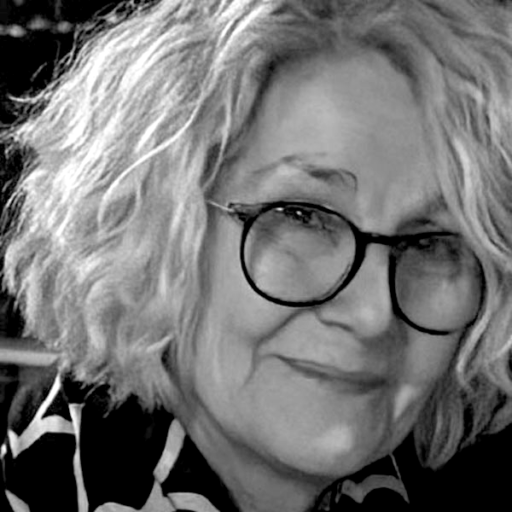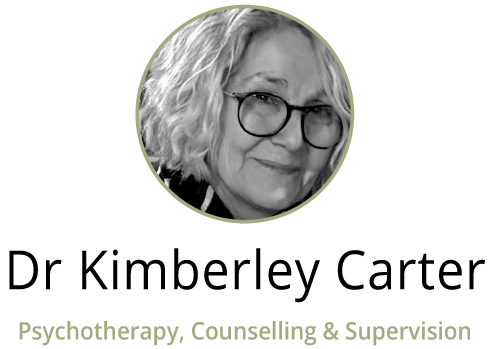Therapy
Taking the First Step
Recognising that you might benefit from some professional help can be hard to accept. You may have tried for a long time to make changes on your own, only to find the same issues keep happening over and over. Once you’ve acknowledged you need some help the first step is finding a therapist you feel comfortable with — someone you can trust to share your thoughts and feelings with.
Therapy can bring up strong emotions, both familiar and new. Feeling supported as you explore what lies beneath the surface can help you make sense of patterns that may have been shaping your life without you realising. Understanding the roots of your distress can be deeply freeing, leading to real change in how you think, feel, and relate to others.
Breaking recent or long standing harmful patterns increases self-worth, and improves relationships. And it all begins with taking that first step.

About Me
My journey into therapy began with a counselling experience that didn’t feel right. It left me with a strong sense that therapy should be much better, on many levels.
Later, working with an experienced psychotherapist showed me just how transformative good therapy can be. Their warmth and understanding not only helped me heal but also inspired the kind of therapist I wanted to become.
That experience led me into years of study — from counselling, psychotherapy training to a doctorate, as well as clinical supervision training — alongside my own ongoing therapy. Spending so much time in the client’s chair gave me a deep appreciation of the process and, I believe, helped me earn my place in the therapist’s chair.
I’ve been a therapist for over 25 years, working with individuals and couples, and supervising other therapists and trainees. My work across the NHS, the drug and alcohol field, and managing counselling services has given me a deep understanding of the many ways people struggle, try to adapt, fail or find their way forward. I feel privileged to share my clients journeys to reach a better way of living.
Areas of Interest
As a Psychoanalytic Psychotherapist I am qualified to work with all kinds of issues that clients present with, but I have a special interest in some particular areas: Twin relationships, Adoption, Boarding School Experiences & Couples Therapy

How I Work
I offer therapy and supervision both online and in person, depending on what feels right for you. Many people value the flexibility of online sessions, while others prefer meeting face-to-face. Sometimes location means the only option is to work online, but it is no less valuable.
My approach is psychodynamic / psychoanalytic, which means exploring how early life experiences may still shape how you think, feel, and relate today.
If you’re new to these terms:
- Psychodynamic counselling focuses on current issues and can be helpful for more immediate concerns.
- Psychoanalytic psychotherapy goes deeper and is often longer-term, supporting people who want to explore long-standing patterns and experiences.
Both approaches help bring hidden feelings into awareness, so they can be understood and worked through. We all develop ways of protecting ourselves from painful emotions — therapy offers a safe space to gently explore what lies beneath and begin to make sense of it.
Although my background is in psychoanalytic theory, my style is flexible and collaborative. Therapy should always be a shared process, with space to reflect, connect past and present experiences, and move toward lasting emotional change.
I offer sessions via Zoom or Facetime and in person at my therapy room in Oxted

Twins
Non twins usually have very specific ideas of what they believe a twin relationship is like ie extremely close and loving, which is often far from the reality of how many twins perceive their relationships. But not all twin relationships are equal, as opposite sex twins will not struggle with the same issues that identical twins experience merely because they look different. ID twins have nearly the same genetic make up. Making them unique in humans and unique in the world of twins. They are identical / or near identical in appearance and mannerisms, which will mean others may find it hard if not impossible to tell the difference between them, and consequently Identical twins will often be seen as one. Understandably this will have dire consequences for their sense of identity. But in degrees all twins will face identity challenges, as they are the same developmental age, unlike ordinary siblings.
Twins were one of two from the beginning so they will have unique struggles in their relationships. They may try to recreate the twin closeness in friendships and with partners, usually with little success. Twins can experience rejection and abandonment when the other (non twin) refuses (albeit unconsciously ) to engage in this dynamic. I do wonder if it is ever possible for Id Twins to be truly an individual because of this, whether they remain in each others lives or are estranged. The other is always there, if not physically present.
Parenting twins is also a complicated business, as these parents have to manage issues that are unique to the twin relationship, alongside the physical & emotional demands of having two children of the same development age:
- Envy or competitiveness in the twin relationship
- Difficulties with relationships outside the twinship
- Separation difficulties
I work with twins, or parents of twins, living in different locations around the world via Zoom.

Adoption
Many people who were adopted carry powerful questions about identity, belonging, and the impact of early separation from their birth mother. Even when adoption has been loving and secure, this early loss can leave emotional traces that are hard to understand. It’s common for adoptees to feel sensitive to rejection, struggle with loneliness, or live with a sense of not being quite “enough.” These feelings have roots in that first, unspoken rupture.
Psychoanalytic psychotherapy offers a reflective space to explore these experiences. Working with a therapist who understands attachment issues, early maternal loss, and adoption can help you connect past experiences with current emotions and relationship patterns. This makes it easier to understand why certain feelings return, and how early adoption trauma still shapes your sense of self today.
For twin adoptees — whether brought up together or separately — these emotional themes can become even more layered. Alongside the loss of the birth mother, there may be complex feelings about the twin relationship itself. Psychoanalytic Psychotherapy offers a safe and containing space to explore these intertwined experiences and to make sense of your own story at a pace that feels manageable.
As a psychoanalytic psychotherapist with experience in adoption-related issues, early loss, and twin dynamics, I offer a steady and supportive space to work through these feelings. Together we can explore how the past has shaped your inner world and help you develop a better sense of yourself as being capable of love and being loved.

Boarding School Experiences
For many years, children as young as seven — and sometimes even four — were sent away to boarding school. At an age when they most needed consistent care and emotional security, they were abruptly separated from their families and placed in environments that prized independence and self-reliance over emotional expression.
These early separations often left children struggling with feelings of loss, confusion, and abandonment. With no one to comfort or help them make sense of what had happened, many learned to suppress their emotions and to believe that their needs were unwelcome or unimportant. Over time, these defences became deeply ingrained, shaping how they related to others and to themselves in adulthood.
As adults, some come to therapy recognising the lingering impact of those early experiences. Others arrive seeking help for entirely different issues, only to discover — often unexpectedly — the buried pain of their boarding school years.

Couples Therapy – Working Psychodynamically
Often couples only end up in therapy when they have already endured years of destructive interactions and tensions that keep on repeating. Therapy is a way to make sense of what is happening between a couple, and to work on how to improve things. Relationships can bring great closeness, and personal happiness, but they can also stir up powerful emotions that can be hard to understand. Without a third mind (the therapist) these patterns just continue and keep the couple stuck in their cycle of repetition and unhappiness.
Working psychodynamically means looking beneath the surface, exploring how early experiences and ways of managing hurt or disappointment may still influence how a couple relate to one another. The aim isn’t to find fault, but to understand the emotions and expectations that sit behind resentments and hurts.
As understanding grows, couples usually begin to see each other in a much better light. This leads to greater empathy, better communication, and subsequently a relationship that feels more connected and caring. Please contact me if you want to explore your relationship dynamics in a safe space.
What to Expect
Our first meeting is called a consultation. It’s a chance for both of us to get a sense of whether working together feels like the right fit. The consultation is longer than a regular session, as there is quite a lot to talk about. We’ll explore what’s brought you to therapy, what you hope to gain, and I’ll ask lots of questions about your background to help me get a fuller picture of you and your experiences.
The consultation fee is paid in advance. If we decide to continue, we’ll agree on a regular weekly time that suits us both. I will also explain some of the practicalities, such as invoicing and missed sessions.
For supervisees, the consultation has a similar structure, but we’ll focus more on your training, experience, and supervision needs.
Individual therapy and supervision sessions last 50 minutes, and couple therapy sessions are 60 minutes. My working hours are Monday, Tuesday, and Thursday, 8:30 am – 7:00 pm, and Friday morning, 9.00 – midday.
You can find more details in the FAQ section of this website.
Fees
Consultation: £130 for individuals and supervisees | £160 for couples
Ongoing fees: for therapy or supervision will be discussed during the consultation, and will be less than the fee for the consultation as ongoing sessions are shorter than the first meeting, which I refer to as the Consultation
Dr Kimberley Carter's Professional Qualifications & Memberships
Relevant Qualifications
- Doctorate (Psychoanalytic Psychotherapy)
- Masters (Psychoanalytic Psychotherapy)
- Diploma in Clinical Supervision
Professional Memberships
- UK Council for Psychotherapy (UKCP) - Registration No. 05157121
- The Guild of Psychotherapists
- European Association of Psychotherapy (EAP)
- British Association of Psychoanalytic & Psychodynamic Supervision (BAPPS)
Other Related Qualifications
- Certificate in Psychodynamic Counselling
- Postgraduate Diploma in Psychodynamic Counselling
- Postgraduate Diploma in Psychotherapy Studies
- Certificate in Time-Limited Psychodynamic Counselling
- Certificate in Stress Management
Psychotherapy Links
Psychotherapy FAQs
What is psychodynamic counselling / psychoanalytic psychotherapy?
Many people will be new to the terms ‘psychodynamic counselling’ and ‘psychoanalytic psychotherapy’.. but both are talking therapies based on the theories and principles of psychoanalysis. Psychodynamic counselling is less focused on the client-therapist relationship, because it is equally focused on the client’s relationship with his or her external world. Psychodynamic counselling is usually shorter than psychoanalytic psychotherapy with respect to the frequency and number of sessions.
Psychoanalytic psychotherapy takes the counselling process further. The therapist will be actively listening to the client with a view to making connections between past and present, particularly with reference to experiences of loss and trauma in very early in life. There will be a focus on the relationship between the client and therapist, as feelings about past relationships will most likely be re-enacted within the therapeutic relationship, at a very unconscious level. It is the therapist's job to help the client become aware of what is going on, both within the therapeutic relationship and externally.
Psychoanalytic therapy seeks to facilitate deep and lasting change within, and to contribute to overall psychological well-being. Its focus is on the conflicts that prevent people from succeeding rather than on advising on how to succeed, and to help understand and resolve the underlying dynamics which cause anxiety rather than giving techniques to control anxiety. The discovery of new and positive ways of dealing with long-standing emotional difficulties is the key to desired breakthroughs in behavioural change.
What are the differences between counselling & psychotherapy?
Counsellors are usually referred to as ‘counsellor’, and psychotherapists as ‘psychotherapist’ or ‘therapist’. The titles reflect the depth of, and length of, training. Some counsellors also refer to themselves as a psychotherapist, although they may not undertaken the additional training. At this point in time this misuse of title is not illegal, so when searching for professional help it is advisable to check out qualifications, with the necessary professional body.
Counsellors are qualified to work with clients once a week; however, an accredited psychoanalytic psychotherapist can usually work with clients more frequently.
What is the psychodynamic / psychoanalytic therapy contract ?
To begin, we will agree on a regular day or days each week to meet. I understand that life can sometimes get in the way, and there may be occasions when we need to find an alternative time—either for a single session or for a short period. While I may not always be able to accommodate changes due to existing commitments, I will do my best to be flexible whenever possible.
Invoices are issued at the end of each month, and I will always provide advance notice of any planned holidays.
It is standard professional practice to charge for missed sessions, including those you are unable to attend due to holidays or other commitments. The only exceptions are in rare and exceptional circumstances, such as sudden hospitalisation or similar emergencies.
A minimum of one month’s notice of ending therapy is usually expected from both sides. This allows us time to review our work together and bring the therapy to a thoughtful close.
How long does the process take?
There is no fixed timeline or predetermined process in therapy. Each person comes to therapy with their own unique reasons and goals, and my role is to support clients in making the most of our time together. Therapy concludes when clients feel ready — it’s entirely guided by their needs and sense of progress.
Goals can evolve throughout the process, sometimes extending the duration of therapy or increasing the frequency of sessions as deeper work begins. Quite simply, the more profound and lasting the desired change, the more time and commitment it will require.
Many people begin therapy with an understandable hope for quick results. However, meaningful change takes dedication and an openness to the process. There are no shortcuts — real transformation unfolds through time, trust, and patience. While the journey can be challenging, the outcomes are deeply rewarding and truly life-changing.
How much does it cost?
Across the profession worldwide, therapy costs are based on a therapist’s experience and qualifications. In line with this mine are a reflection of my training and experience.
The fee for ongoing therapy will be discussed when answering an enquiry, or during the first meeting, which I will refer to as the consultation.
Will I benefit from psychodynamic therapy?
It’s actually quite common for therapy—whatever type it is—to uncover a whole mix of issues, some of which we might not have been aware of at all when we first started. As the process unfolds, people often find themselves discovering new layers of their feelings, thoughts, and behaviours that shed light on why they do what they do or feel how they feel.
If you’re someone who wants to understand yourself better and make real, lasting changes, talking things through with a psychodynamic therapist can be a powerful way to do that. Together, you can explore how past experiences and unconscious patterns might be shaping your present life, and gradually build a deeper sense of self-awareness and emotional freedom.
That said, it’s important to remember that this isn’t a quick fix. Therapy takes time, effort, and a genuine desire to grow. There may be moments when it feels tough or uncomfortable—but those moments are often where real change begins. With patience and commitment, the process can lead to a more authentic and fulfilling way of living.
Have you been in my position before?
Yes I have, and was in frequent analysis for many years. For me it is the bedrock of the profession. Anyone who qualifies as a counsellor or psychotherapist should have sufficient therapy themselves. When you are thinking of working with a therapist it is very important to ask about their own experience with therapy.. not the exact details but rather the length & intensity.
Comprehensive training requires a lengthy period of being the client. Sometimes people who have completed a counselling course will have spent a limited amount of time in therapy themselves. So check this out. Whereas someone who has undertaken a psychotherapy training will have been required to undertake personal analysis, lasting many years. A counsellor / psychotherapist should have been in their own therapy at the same frequency of sessions at which they are working with their clients. So someone who only had once a week therapy themselves is not qualified to see clients more than once a week.
It could be very damaging to work with a therapist who themselves has had very little personal therapy. So it is advisable to check this out, and research their training/qualifications. You have the right to ask, and if they are reluctant to be open with you about this, then it might be best to look for another therapist rather than end up feeling disappointed or worse further down the road.
What can I expect from the client/therapist relationship?
The therapeutic relationship is a professional one, focused entirely on your wellbeing. To maintain clear boundaries and ensure a safe space for therapy, I will not have any personal or social relationship with you, your relatives, or your close friends outside of the therapy sessions.
What are the qualifications and professional requirements of psychoanalytic psychotherapists?
Choosing a Psychoanalytic Psychotherapist or Psychodynamic Counsellor
Psychoanalytic psychotherapists should have completed their training with an organisation that is a member of the United Kingdom Council for Psychotherapy (UKCP) or the British Psychoanalytic Council (BPC), and they should be registered with one of these professional bodies. You can find more information about the standards of the UKCP and BPC by following the links above.
As part of good professional practice, psychotherapists are expected to engage in ongoing supervision of their clinical work and to maintain their professional development through regular participation in seminars, workshops, and other training opportunities.
A reputable therapist will be open about their training, registration status, and professional experience, and will clearly state which professional body they are affiliated with.
Psychodynamic counsellors, by contrast, undertake a shorter period of training than psychoanalytic psychotherapists and are usually accredited by the British Association for Counselling and Psychotherapy (BACP).
What does supervision involve?
All qualified therapists should be in regular and ongoing supervision of their practice.
The purpose of supervision is to increase knowledge to support the therapist and protect the client. It involves a series of ongoing meetings where the therapist regularly consults a senior colleague or a group of peer colleagues to discuss professional experiences. The frequency of supervision will depend on the experience of the therapist.
Clients are not identified by name or personal details in the supervision process which protects their anonymity and confidentiality.
Do you prescribe drugs?
A counsellor or psychotherapist will never prescribe drugs or pharmaceutically advise the client in any manner, formally or informally. Unless they are also a Psychiatrist who also practices as a Psychotherapist.
What about confidentiality?
Confidentiality
Our conversations are treated with the utmost confidentiality and will not be discussed with anyone except my supervisor. However, there are exceptional circumstances where confidentiality may need to be broken. These include situations where you express uncontrollable suicidal intentions or actions, or disclose information about activities that are causing, or could cause, harm to another person — for example, the abuse of a child or active plans to harm another adult.
If such a situation were to arise, I would make every effort to support you in sharing this information with the appropriate professional or authority. If this is not possible, I would inform you before contacting another professional myself, and I would explain the reasons for doing so.
It is important to recognise the distinction between thoughts or feelings and actions. Only where there is a reasonable likelihood of harmful action would any breach of confidentiality be considered.
NOTE: There are various different therapy approaches available, but the Q&As above only relate to psychodynamic counselling and psychoanalytic psychotherapy.
For Counselling Contact Me

Dr Kimberley Carter
Phone: 01883 338594
Email: dr.kimberley.carter@gmail.com
Address: Barrow Green Road, Oxted RH8 0NJ
